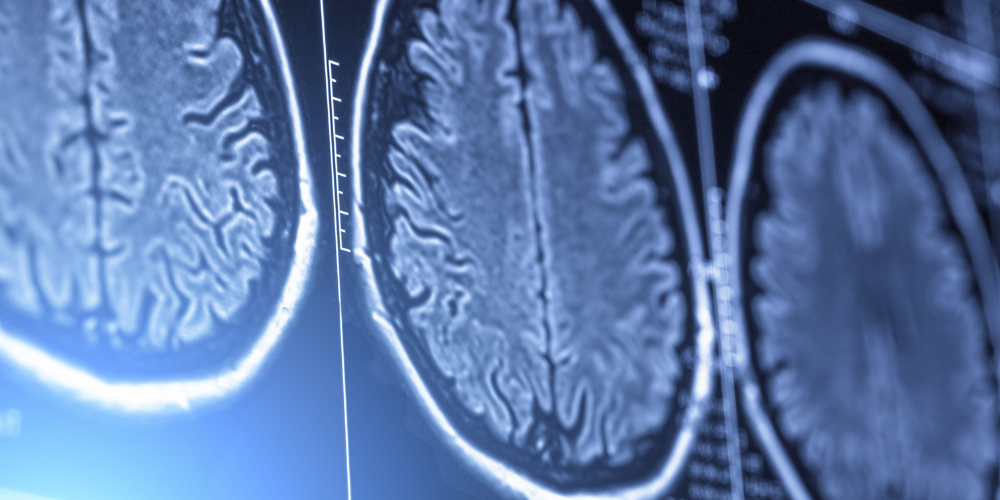Willpower alone will not help a person to overcome an addiction. This all-too-common myth is dangerous when broaching the topic of substance abuse disorder (SUD) in context with treatment efficacy. Frequently, there are physical and psychological factors contributing to or exacerbating this complex disease, many of which go overlooked. Discovering information about what part of the brain controls addiction can help shed light on the factors that extend beyond reasoning and the perceived control of impulses.
Various studies conducted by the National Institute of Health (NIH) closely examine the neurochemical and functional changes of the brain as a result of SUD. Is there a portion of the brain more severely affected by prolonged substance abuse, and what part of the brain controls addiction, if any? These questions may provide new insights into the mechanisms underlying the nationwide drug epidemics.
Neurochemicals & Addiction
Scientific studies assert that drug dependence and addiction are features of an organic brain disorder caused by disruptions in natural brain processes and neurotransmission. In other words, substances’ impact on various brain chemicals can trigger addiction or prevent many from overcoming the disease.
Indeed, drugs’ rewarding properties can influence behavioral patterns that reinforce feelings of perceived pleasure, relaxation, tranquility, and more. To the point, drugs can alter the way people think, feel, and behave by disrupting neurotransmission signals. These disruptions can have lasting impacts that impede certain individuals from “finding the willpower” to stop using.
Types of Neurochemicals
Looking at what part of the brain controls addiction, it’s important to understand the mechanisms and the duties carried out by various and high vital neurotransmitters. The Canadian Medical Association Journal suggests that multiple neurotransmitter systems may play a key role in developing and expressing drug dependence. What are some identified neurochemicals to consider?
Dopamine
Dopamine is widely viewed as the brain’s happy chemical. Its functionality allows us to perceive pleasure. Additionally, it allows people to think and plan, plus it enables us to learn while also helping to regulate sleep, heart rate, kidney functions, and pain processing.
Drugs such as cocaine can have a lasting impact on dopamine production and processing. For one, when dopamine levels rise rapidly, it can increase the threshold for identified pleasure. As a result, a user may experience emotional lows when not using. They may also feel the need to continue using to achieve the new level of pleasure found from the imbalance of dopamine chemicals.
Serotonin
Serotonin is a neurotransmitter that carries out a wide range of duties, signaling from nerve cells in the brain to various parts of the body. It also plays a crucial role in mood regulation and even digestion. A class of antidepressants known as serotonin reuptake inhibitors (SSRIs) address anxiety, depression, and other mood disorders by addressing depleted serotonin levels.
Different types of substances, including alcohol and illicit drugs, can impact serotonin in the body. A Scripps Research Institute article explains that the increased serotonin levels caused by alcohol or drugs explain why some people continue to use them. The following substances affect serotonin one way or the other:
- Cannabinoids
- Ethanol (Alcohol)
- Opioids
- Psychostimulants
Each type of drug interacts with the brain and serotonin in unique ways. The effects of alcohol and drugs on neurotransmitters are not entirely clear. Treatment methodologies continue to evolve as new research is conducted. Does it explain what part of the brain controls addiction? Not quite, but we do know that this specific neurotransmitter has long been associated with substance abuse.
Endorphins
The term endorphins is used in everyday conversation, or at least more often. “Exercise releases endorphins” is a familiar soundbite heard from day to day. And it’s true. Current Centers for Disease Control and Prevention (CDC) guidelines suggest that adults should engage in either:
- 150 minutes of moderate intensity aerobic exercise
- 75 minutes of vigorous aerobic exercise
Endorphins are the feel-good hormones produced in the brain, which reduce pain perception and trigger euphoria feelings. Unfortunately, the same chemical that helps active people feel better proves to be detrimental to those battling substance use disorder (SUD).
The seriousness of drug abuse may very well point to endorphins as a leading factor in substance dependency. Science Direct states that neurobiological and behavioral evidence supports the assertion that endorphins trigger reward and reinforcement, particularly in those suffering from substance misuse.
Find more information on various neurotransmitters, functions, and substances that may impact these vital brain chemicals here: Common Neurotransmitters Chart.
Addiction and the Brain
Neurotransmitters obviously play a key role in addiction, but to what extent? Do they demonstrate a causal relationship? Addiction is a complex disease attributed to multiple factors and can vary in severity from person to person. Genetics, environments, mental health, and even social structure may also change how a person interacts with certain substances, whether it’s alcohol, illicit drugs, or prescription medications.
According to a National Survey on Drug Use and Health (NSDUH), an estimated 45% of people with an SUD are also suffering from a co-occurring mental health disorder. Nearly 30 million American’s are facing substance abuse issues.
What Part of the Brain Controls Addiction?
Compromised self-control is a key indicator in individuals who are suffering from SUD. Due to continued alcohol or drug use, a person may be less able to override certain behaviors, such as seeking relief from the imbalance of brain chemicals.
There are also two other brain areas, the extended amygdala and the prefrontal cortex, that can clarify what part of the brain controls addiction. The extended amygdala controls our response to stress. When dopamine is flooding the reward circuitry, bursts of stress neurotransmitters within the extended amygdala simultaneously push the brain to escape unpleasant situations. Together the basal ganglia and extended amygdala:
- Control spontaneous drive to seek pleasure and avoid pain
- Cause physical and emotional distress when not taking a drug
As substance dependence grows more severe, continued use is the only option for relief. At this point, a person likely no longer takes a substance to “get high” but instead to avoid feeling low.
How Can AspenRidge AspenRidge Virtual Care Help?
Addiction is a complex disease that disrupts a person’s ability to maintain control of various substances used. Research is still not entirely clear exactly what part of the brain controls addiction, as it likely depends on many different factors. However, what is known is that – in healthy adults – impulses are balanced by judgment and decision-making circuits in the prefrontal cortex. According to the Surgeon General, substance use disorders disrupt these prefrontal circuits. The result is a reduced ability to control powerful impulses toward alcohol or drugs despite its detrimental consequences.
Given the complexity of SUDs, treatment options should, in some capacity, provide dual diagnosis support. For one, behavioral, emotional, and mood disorders are extremely common in people battling addiction. Drugs can quickly impact the way neurotransmitters function in the body, making it difficult to self-regulate and combat the onset of dependency.
With AspenRidge AspenRidge Virtual Care, we offer dual diagnosis support through our addiction treatment care. Our programs consider – not only how the physical body is affected by drugs – but how the brain copes with prolonged periods of imbalances in dopamine, endorphins, and serotonin, plus other essential neurotransmitters. By addressing these imbalances, individuals have a better chance of long-term sobriety.
Online Addiction Assistance
Our programs are 100% virtually based. Through secure technology, we offer support from nearly anywhere. Additionally, our licensed staff can help you begin the process toward sobriety and provide a tailored approach designed to help you overcome a difficult battle. While the journey away from substance abuse is arduous , having experienced support can make all the difference.
Learn more about our online addiction recovery programs or give us a call today at 720-650-8055.







